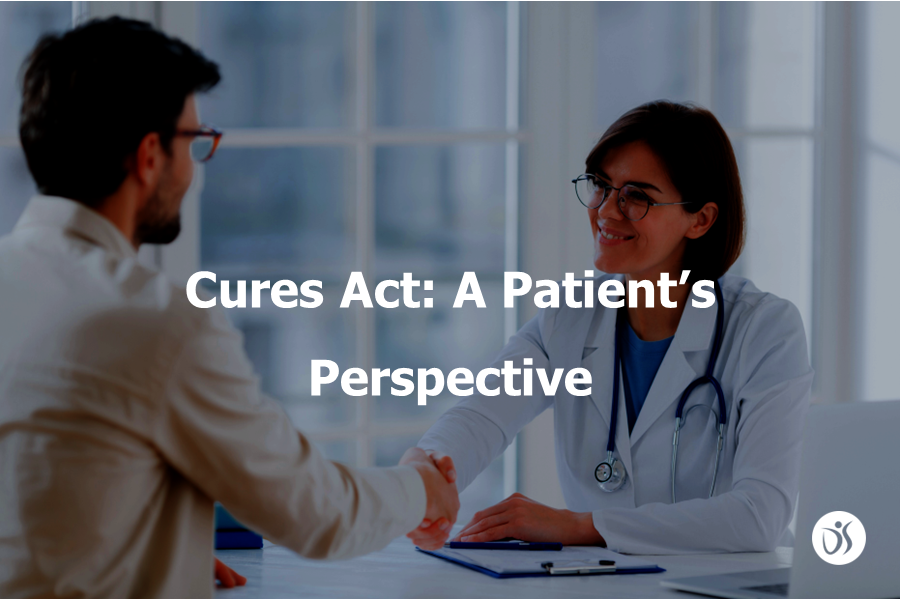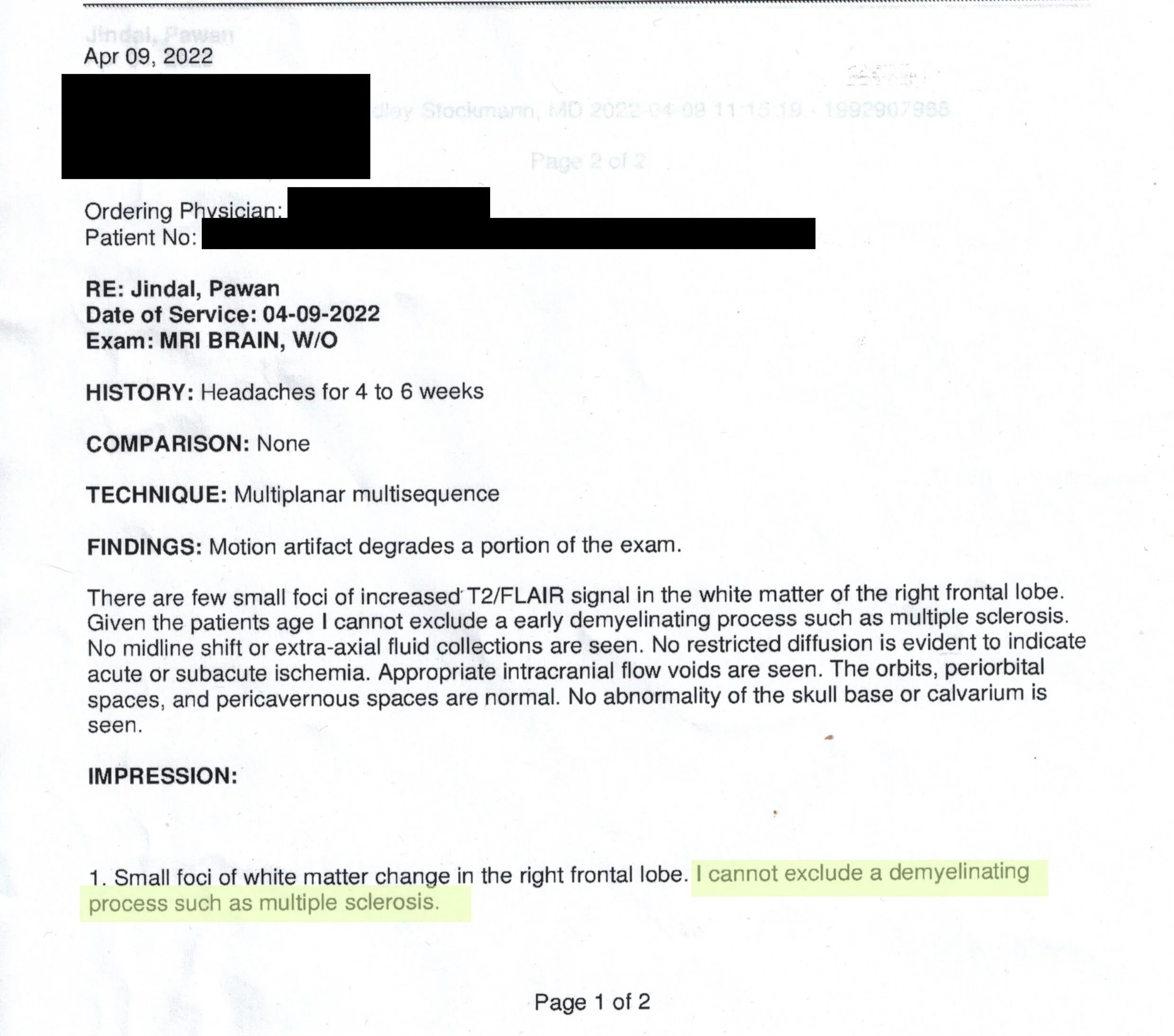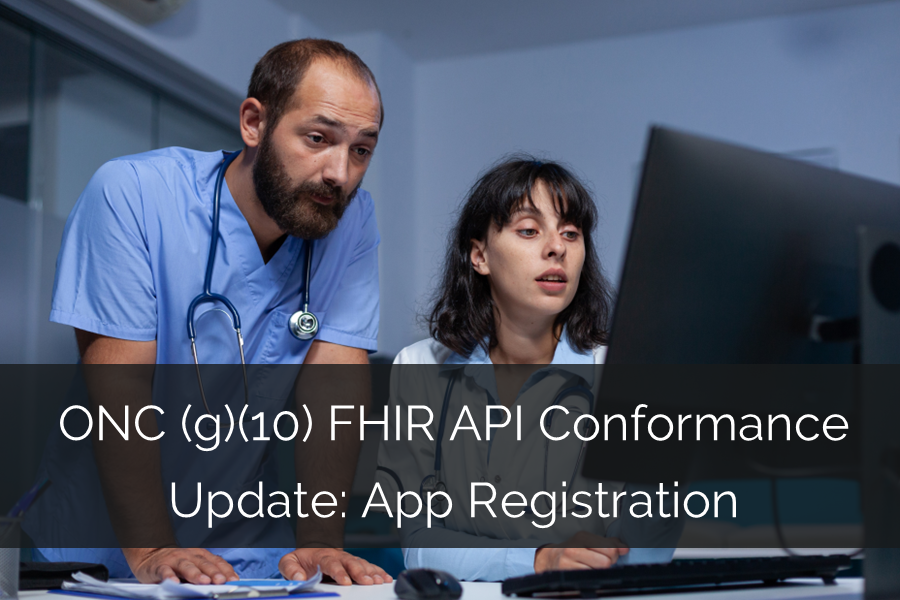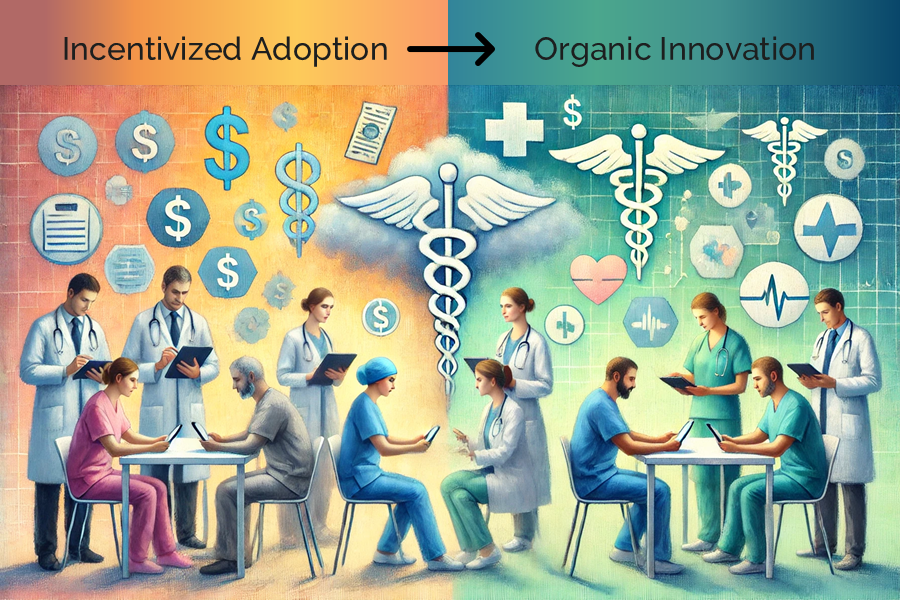Cures Act: A Patient's Perspective
“Patient is not a third-person word. Your time will come.” -Dave deBronkart
Most of us in healthcare have heard the very famous above-mentioned quote from Dave deBronkart. Dave has been an inspiring speaker on change, and adversity, a true champion of democratizing healthcare and empowering patients. Over the last few months, I have had the opportunity to talk to several EHRs and providers to help them understand Cures Act. These conversations have been driven by the solutions we offer. With the Cures Act deadlines around the corner, the focus has been on “how” to meet the requirements, and not “why”. A few weeks ago, I had a personal experience that reminded me of the “why” and the real impact of the Cures Act that I want to share with all of you.
Self Diagnosing Patients
Doctors make the worst patients. Being a practicing physician in my past life, I can attest to this statement. A few months ago, I started having severe headaches in the morning. I kept self-diagnosing and telling myself that it is just work-related stress and will eventually go away. A part of the self-diagnosis was my lack of physical activities, so I proceeded to set up the full Peloton suite and started doing regular morning workouts. When things didn’t get better, I finally decided to talk to a friend who is a practicing physician for a “second opinion”. After discussing the symptoms, we decided to play safe and get a head MRI. The next day I got the MRI done, and this is what the report said.
Riding the Emotional Roller Coaster
Early signs of multiple sclerosis can’t be ruled out!! I read that and felt my whole world crumble in front of my eyes. After a few moments, I called my friend, and he came over immediately to discuss it. “Multiple Sclerosis is a clinical diagnosis. The radiologist has to include that in the report as they don’t have the complete history. Have you had any tingling or numbness recently?” he asked. I just realized that I have been having a weird sensation in my right foot, not really tingling. He made some calls and got me an appointment with the best neurologist he knows. They asked for a “reason for visit,” and we told them “Abnormal MRI.” That appointment was still a week away and I couldn’t wait that long. I got a copy of the MRI and uploaded it to a public DICOM viewer. I sent it to every physician within my network and asked them to consult with the best radiologists they know. Six hours later, I had the opinion of 8 radiologists. Every single one of them looked at the MRI and told me that it was NOTHING. Nothing at all. I breathed a sigh of relief. There were a lot of four-letter words that followed it.
The Power of Data In My Hands
A week later, I went ahead with my appointment. Upon my check-in, they told me that they have still not received the MRI due to some “glitch”. The neurologist’s first reaction was that she couldn’t comment on the MRI finding as she didn’t have access to the actual MRI. To her surprise, I pulled out my phone and showed her the MRI. She showed me the spot the radiologist had referred to in his report and explained in detail why that was NOT anything to worry about. She did a thorough evaluation, and it turns out that I was being too aggressive in my workouts. She said that I probably have a stress fracture in my little toe. That explained the “weird sensation”. “What about the headache?” I asked. “Has your wife complained that you snore too much”? I replied, my son complains from a floor above that I do. She ordered a sleep study and said it was probably sleep apnea. She told me to take it slow and use “common sense” in my efforts to reduce weight from now on.
Think Like a Patient First
I am blessed to have access to a vast physician network. I can’t imagine what it would have meant for someone to live under that fear and make rash life decisions, only to find out later that the provider was being cautious and covering their liability. As I have shared my story with friends, I have heard many similar stories of misdiagnosis and the mental trauma that people had to go through. “Second opinion” is just one of the basic benefits of the Cures Act. It has a taboo attached that the patient does not trust their doctor. That is not true. No one is perfect. I am a physician and a health informatician, but I am a patient first (sometimes). When I am, I want to leverage the technology to work in my favor. In order to do that, I need access to my health data. That is an example of the “why” of the Cures Act.
Impact of Cures Act on Our Lives
Most of us in the Health-IT community might have only looked at the “For Clinicians” and “For Developers” sections of this regulation. I encourage you all to review the “For Patients” section too and understand the impact this could have on our lives and the lives of our loved ones - What ONC's Cures Act Final Rule Means for Patients (healthit.gov). Cures Act is not just any other federal regulation. It will fundamentally change how healthcare is provided and consumed. In one of the HealthLeaders interviews, the ONC Chief Micky Tripathi said:
“The first one[goal] is getting people past thinking about information blocking as purely compliance or as only compliance—having them think about it more in a strategic way, which is, how do I engage patients, now that I have this information available, and they have these cool apps now on their hands?”
Unfortunately, many Healthcare services vendors are still advertising solutions to help you check the requirements box, with no detailed plans for implementing and supporting them. Don’t get burnt by them. If you are not convinced by the benefits of Cures Act, review the claims that are being filed for non-compliance. These penalties are real. We are conducting various workshops to help EHR vendors, providers, and app developers to understand Cures Act. Contact us if you are interested in learning more. I promise you these are not sales presentations. Yes, we have a solution to help with it but that will only work if everyone comes together. This can only happen by educating everyone about the benefits of the Cures Act. Let us work together to bring democratization to healthcare.













